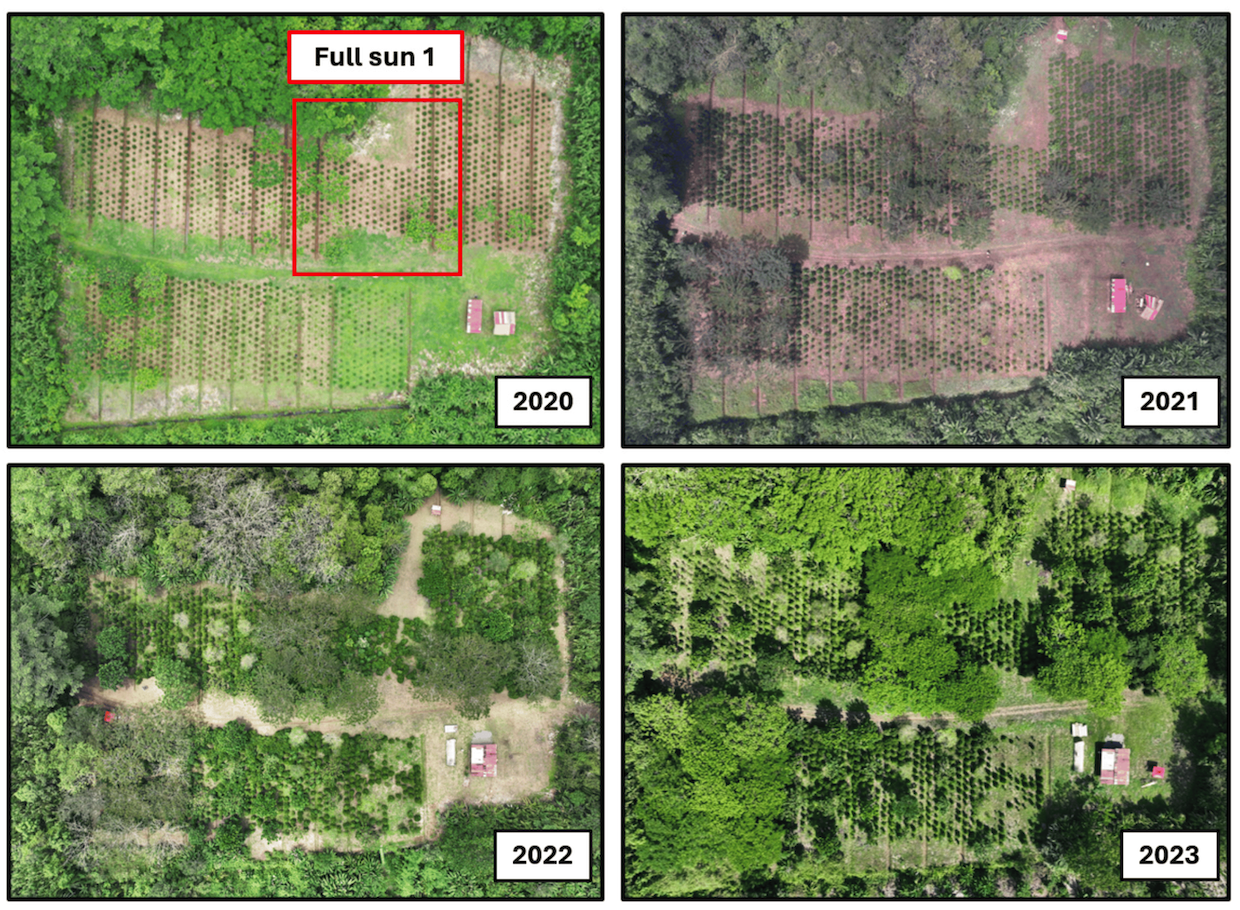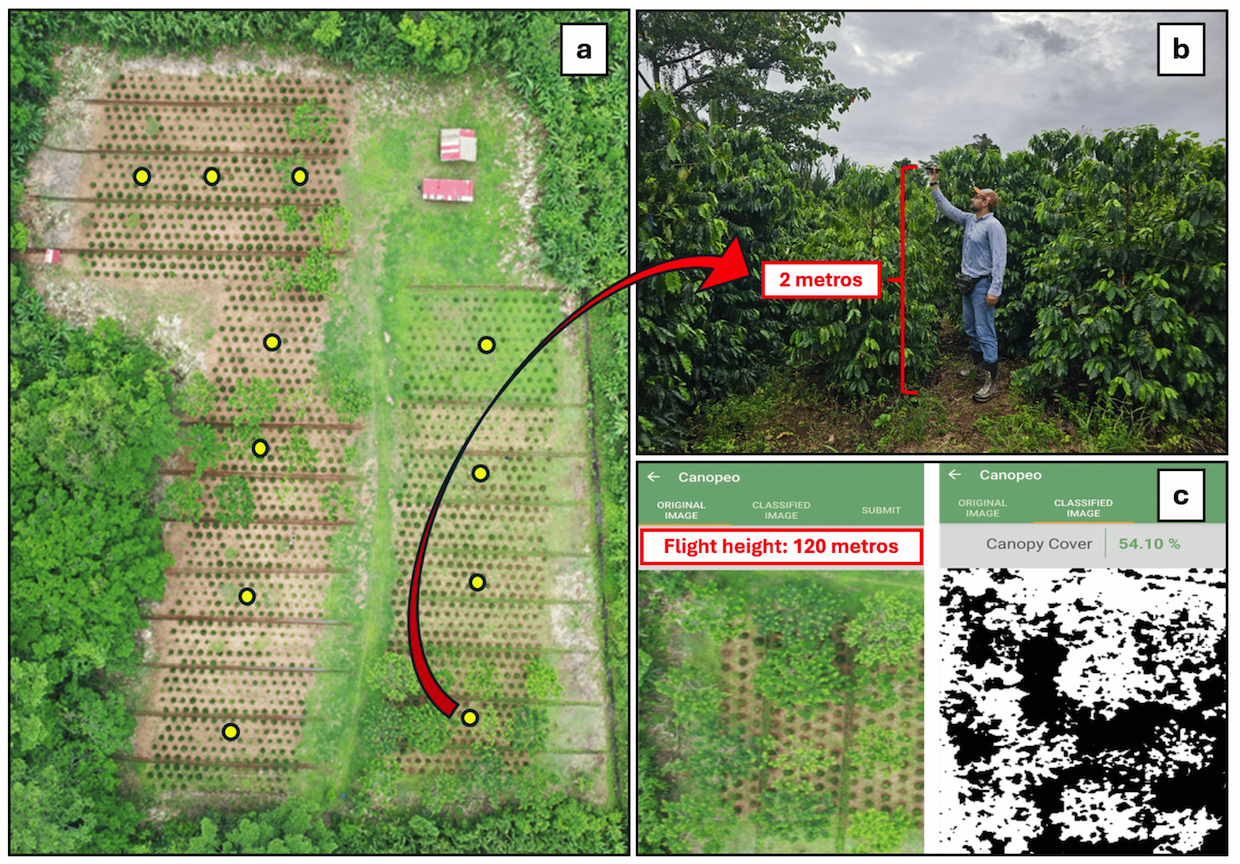
Annual evolution of the different agroforestry associations and full sun areas in the trial (2020–2023). Image shared via Creative Commons Attribution (CC BY) license 4.0. Find the original image here.
A groundbreaking multi-year study on coffee agroforestry in Costa Rica’s Caribbean lowlands revealed promising strategies to expand coffee cultivation into non-traditional regions.
The implications may be globally significant, considering the increased demand for arabica coffee combined with a coffee cultivation landscape that is rapidly changing with the climate.
Published in the MDPI journal Agriculture, the research was led by Earth University Professor Victor Hugo Morales Peña and a team representing institutions such as the tropical research agency CATIE, Colombian agricultural research agency AGROSAVIA and Universidad de Costa Rica (UCR).
By combining innovative agroforestry techniques with hybrid coffee varieties, the research demonstrated how low-altitude areas could become productive and sustainable coffee-growing zones, capable of producing arabica coffee that meets Costa Rican quality standards for arabica.
“Reviving coffee-growing zones in Costa Rica, including those like the Huetar Caribe region that ceased production over 20 years ago, is key to restoring economic activity in marginalized areas or those dominated by subsistence agriculture,” Fernando Altman, an Earth University graduate and coffee producer who participated in the study said in a project announcement. “After more than eight years of witnessing the benefits of coffee hybrids, we want to share this experience with other producers so they can be profitable and keep the industry active. These initiatives can have an enormous impact on local communities.”

Methodology for recording canopy cover percentage (shade) using the Canopeo application. (a) Data collection points at the tree–coffee interaction level and full sun experimental controls 1 and 2. (b) Smartphone image capture at 2 meters height. (c) Determination of shade percentage using the Canopeo application on a drone-captured image. Image shared via Creative Commons Attribution (CC BY) license 4.0. Find the original image here.
The field research has involved the cultivation of an F1 hybrid arabica variety called Esparanza L45. It explores how agroforestry systems — with various degrees of shade cover and different fertilization techniques — might mitigate certain climatic conditions such as extreme heat or drought.
In the field, coffee plants grown under tree coverage showed better growth and significantly higher cherry production than full-sun plots. Tree-shaded systems also reduced plant mortality rates from 39% for full-sun plots to 7%. The researchers said the result underscores the importance of trees in buffering temperature extremes and reducing environmental stress.
Additionally, the research team found that chemical fertilizer was slightly more effective at boosting early-stage plant growth. The best results were shown in plants that received their minimum requirement for fertilizers while also receiving shade cover, a strategy described as synergistic in warm, low-altitude areas.
Said lead author Victor Hugo Morales Peña, “This project has demonstrated that coffee cultivation in lowland areas can be productive and can maintain the high-quality of Costa Rican standards, especially when using genetically improved Arabica coffee.”
Comments? Questions? News to share? Contact DCN’s editors here.






Comment